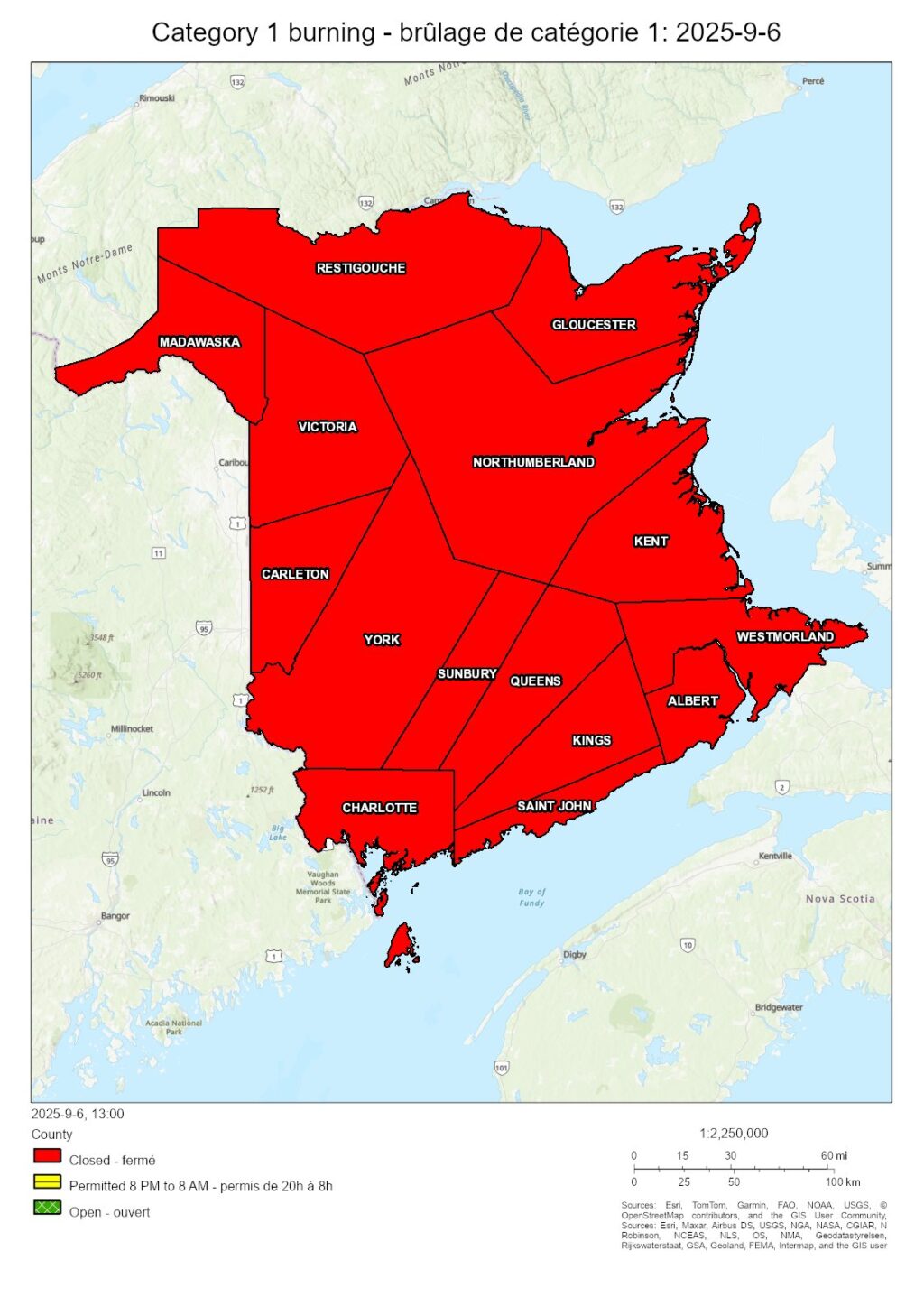
Introduction
The fire ban in New Brunswick has become a significant concern amid the province’s ongoing battle with wildfires. With increasing temperatures and dry conditions, the government has implemented strict fire bans to ensure public safety and reduce the risk of uncontrolled blazes. This season, the ban is even more pertinent as New Brunswick faces a spate of forest fires that threaten both homes and wildlife.
Current Fire Ban Measures
As of mid-August 2023, the New Brunswick government has issued a province-wide fire ban effective until further notice due to heightened fire risk. The ban prohibits all open burning, which includes campfires, burning brush, and backyard fire pits. Officials have also restricted the use of fireworks and have advised against using any equipment that could create a spark, such as lawnmowers and chainsaws during dry conditions.
Reasons for the Ban
Environmental conditions have contributed significantly to the implementation of the fire ban. This summer, New Brunswick has experienced an uptick in temperatures above normal averages, combined with limited rainfall. According to the Department of Natural Resources and Energy Development, over 100 wildfires have been reported this season alone, burning hundreds of hectares of forest. The most concerning flames have included blazes in the Miramichi and Bathurst regions, leading to evacuations and air quality alerts due to smoke.
Public Awareness and Guidelines
Residents and visitors are urged to stay updated on the status of the fire ban through official channels. The Department of Natural Resources releases guidelines on their website and via press releases to inform the public about necessary precautions and updates. In addition to halting outdoor fires, authorities encourage individuals to maintain fire safety in all activities, especially while hiking or camping in provincial parks, which are also closed for campfires.
Conclusion
The fire ban in New Brunswick is not only a precautionary measure; it reflects the broader issue of climate change and its impact on local ecosystems. Experts predict that as conditions continue to warm and dry out, such bans may become more frequent. Members of the community are reminded to adhere to these restrictions to protect themselves, their loved ones, and the natural landscape. By following guidelines from local authorities and being mindful of their surroundings, residents can contribute to minimizing fire risks during this challenging season.



